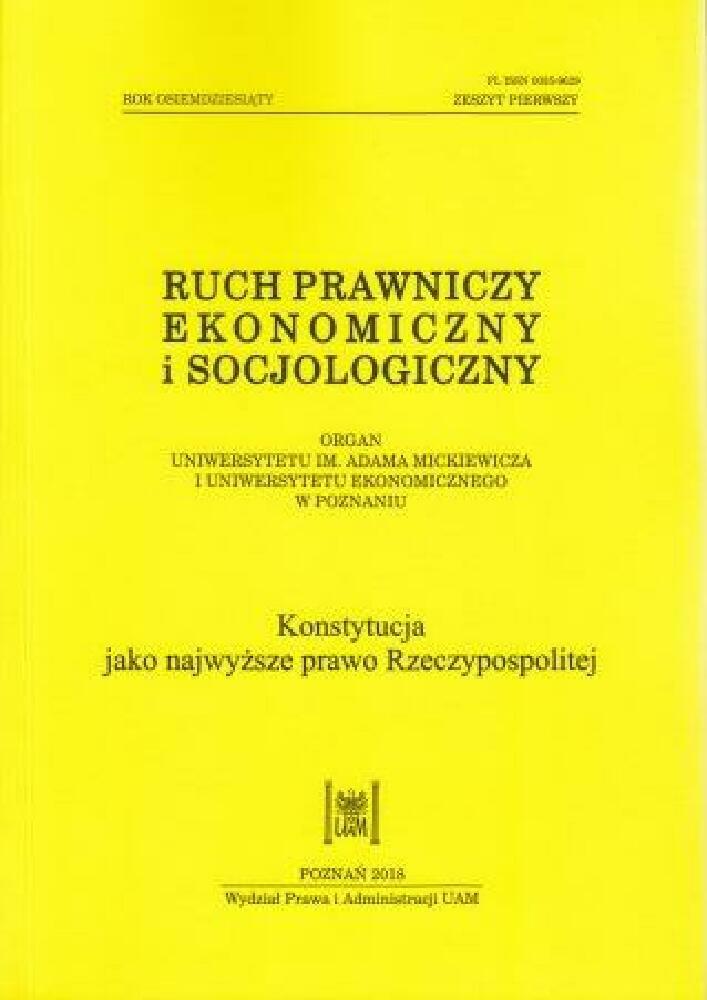Abstract
The tripartite separation of powers is an inherent feature of the rule of law characterising democratic systems. The separateness of public authorities is largely determined by the way they are selected. The opposite of the separation of powers is the power of a single person or the omnipotenceof a single political power. This situation may arise not only from revolutionary (forced) events, but may also result from legally won democratic elections which the victorious parties invoke, justifying their efforts to permanently monopolise the most important institutions that influence the socio-political and economic activity (including public media and NGOs). Even if they received only a dozen or so percent support from the general public entitled to vote as a result of the electoral law in force, they unjustifiably invoke the ‘sovereign will’, altering the constitutional principles of the political system by means of ordinary legislation. What is particularly dangerous is when the above phenomena are being covered with appearances of the maintenance of the tripartition of powers and a merely formal existence of all democratic institutions that have been, in fact, subordinated to the political will of a single centre of power. Such phenomena are contrary not only to the fundamental democratic principles of the rule of law, but they also threaten the deeper values of the common good which has a collective and individual value. Their violation directly threatens the constitutional system of the state and undermines the legitimate interests of individual citizens. It is therefore worth taking care to ensure that the real (and not simulated) tri-partition of powers is not eroded.
License
Copyright (c) 2018 WPiA UAM

This work is licensed under a Creative Commons Attribution-NonCommercial-NoDerivatives 4.0 International License.




